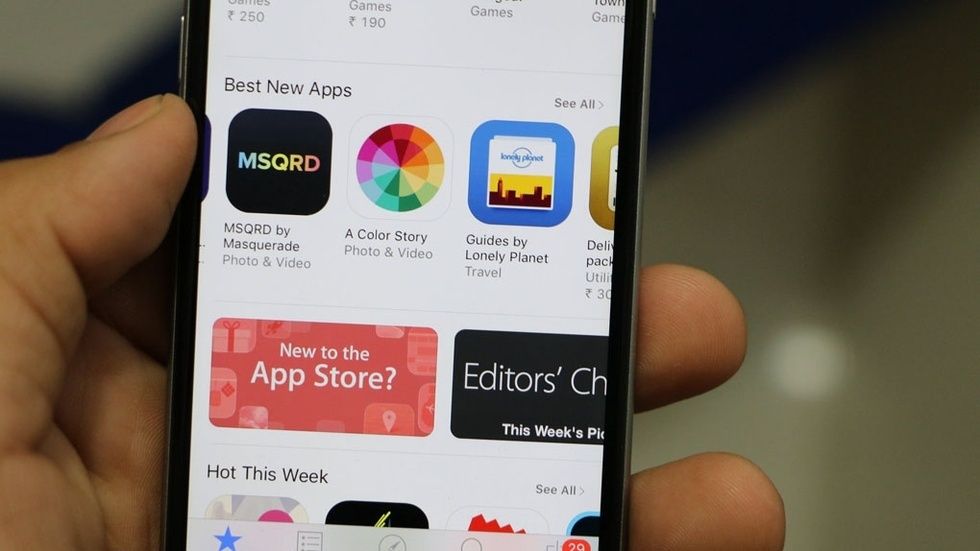Titans are clashing. Large tech corporations, together with Apple, are going through authorized challenges from authorities entities such because the European Fee and the U.S. Division of Justice. Battle traces are being drawn. Compromises are being floated. Hours are being billed by dear legislation companies.
However what does all of it imply for the common individuals who stay in areas ruled by these entities and use merchandise made by these tech giants? Is that this one thing that can change how we use our private know-how, or will it find yourself which means an entire lot of nothing? What in regards to the smaller builders who create modern apps however can’t afford to make use of big legislation companies or take out million-euro traces of credit score at their native financial institution?
Who will get protected?
Typically I’m wondering precisely who the European Fee is defending–its residents, or massive firms? Fortuitously, Apple has handed the EC a golden alternative to indicate what it stands for. Apple was just lately pressured by regulators–er, I imply, it acquired suggestions from builders and different stakeholders–to amend its complicated plans for different app marketplaces within the EU and simply go forward and provide direct downloading of apps. (Once more, it’s 2024, and solely now could Apple provide iPhone customers in a single area the flexibility to obtain software program from the Web, one thing many Mac customers had been doing within the Nineteen Nineties!)
As a result of the EC has (rightly) allowed Apple to proceed appearing within the curiosity of the safety of the customers of its platforms, Apple hasn’t simply agreed to activate iPhone app downloads within the EU. As a substitute, it’s created the idea of a “trusted developer”–and solely builders who meet a sequence of guidelines can qualify. The foundations require builders to spend at the least two years with energetic Apple developer accounts and have a profitable app enterprise with 1,000,000 app installs within the EU within the final 12 months.

Apple’s new App Retailer guidelines might find yourself hurting its smallest builders.
Foundry
In different phrases, to get round Apple as a gatekeeper of software program, you need to spend two years inside its gates and have already created an app so in style that it’s landed on 1,000,000 iPhones within the EU. Within the title of safety, Apple has raised the bar for sideloading so excessive that nearly no person will have the ability to cross it.
This can be a rule that provides freedom, however just for the most important and most profitable builders. Think about if a bunch of good builders left their employers, received some funding, got here up with an concept for a killer app needed to be sideloaded as a result of Apple’s refusal to permit such an app in the actual App Retailer, and received busy. They’d want to attend two years and create another hit app within the meantime to be thought of reliable.
Now it’s the European Fee’s alternative to determine whether or not Apple is allowed to set arbitrary guidelines that bar smaller builders from alternatives open to the likes of Spotify, Epic, and Meta. We’ll see what it decides.
Equally, Apple’s “Core Technology Payment” threatens small builders by charging 0.50 euros per app obtain over 1,000,000 downloads. As developer Riley Testut testified final week, a free app he constructed as a youngster and gave away at no cost would’ve value his dad and mom tens of millions of euros in charges. An Apple consultant indicated the corporate is conscious of the problem, however it’s straightforward to see why this weird algorithm exists: Apple’s making an attempt to cadge cash out of massive builders. Smaller builders? They’re simply collateral injury.
Trickle right down to who?
Whereas most regulation is at the least supposed to learn the general public in the long term, many regulatory regimes observe a form of “trickle down” method to the advantages. The idea goes that if companies are in a position to higher compete with gatekeepers like Apple, the competitors will create a greater atmosphere for shoppers. We’ll all profit from decrease costs as the massive corporations compete with each other.
Sadly, quite a lot of the gamers within the DMA case appear to be squabbling over which firm will get extra of the cash. Epic Video games doesn’t wish to pay 30 p.c to Apple, however to not give it again to the customers, Robin Hood-style–it needs the cash for itself. It’s a for-profit company, in spite of everything. The identical goes for Spotify and all the remaining. Their aim is to vary Apple’s methods in order that it’s simpler for them to earn money with out Apple getting in the way in which.
This isn’t to defend Apple, which has made an terrible lot of cash by inserting itself between app builders and their clients. To me, it’s simple that Apple has degraded a number of components of the iOS expertise as a way to take a portion of each in-app monetary transaction for itself. We’ve all been shopping for issues on the net for what number of a long time now? But Apple insists that it’s unsafe to permit customers to make use of their very own bank cards to pay for issues on the net and even go to the net.
My level is, will all this reform actually imply shoppers pay much less? Or is that this only a squabble about which company will get to guide a bigger common income per consumer?
Defending us from ourselves
In each Europe and the USA, a few of the strikes being made appear unfounded, misguided, or confused–and don’t appear to straight deal with the lives of standard folks. I recognize that controlling entry to iOS by way of the App Retailer provides Apple a rare stage of management over builders, however what number of iPhone customers in Europe are ever going to put in an alternate app market, not to mention patronize one over the long run? Will options to in-app buy grow to be wildly in style, or will the comfort of Apple’s easy buy system be sufficient for many customers?
Governments can drive corporations to offer customers a alternative, however that doesn’t imply the customers will select one thing completely different.

Apple customers actually love their iPhones—so does lock-in actually matter?
Apple
Then there’s the Division of Justice. I’ve spilled thousands of words in regards to the case and anticipate spilling a whole bunch of 1000’s extra over the following few years. The preliminary submitting has some sturdy factors and quite a lot of weird and weak moments, however after studying the entire thing, I walked away with the sense that the Division of Justice has nothing however contempt–for Apple and its clients.
The doc is full to the brim of the angle that Apple has spent a long time as a form of technological con artist. It makes the standard drained argument that, primarily, Apple dazzles suckers with intelligent advertising, cons them into shopping for overpriced junk, then claps on the manacles and locks them in an ecosystem from which it’s unimaginable to flee.
It feels to me just like the lock-in argument is a bit overplayed. I’d reasonably swap my iPhone than my Mac, iPad, or Apple TV. Subsequent, check out Apple’s rising gross sales, growing market share, stable charges of getting Android customers to change to iPhones, and sky-high buyer satisfaction charges.
It certain looks like folks… like their iPhones, really?
Sure, Apple advantages from lock-in and regularly encourages it. And that habits is irritating and needs to be curbed. The corporate has quite a few anticompetitive insurance policies that must be stopped. However step again for a second and contemplate: What if the top results of this complete lawsuit is that the Division of Justice unlocks the lock-in… and no person leaves?








